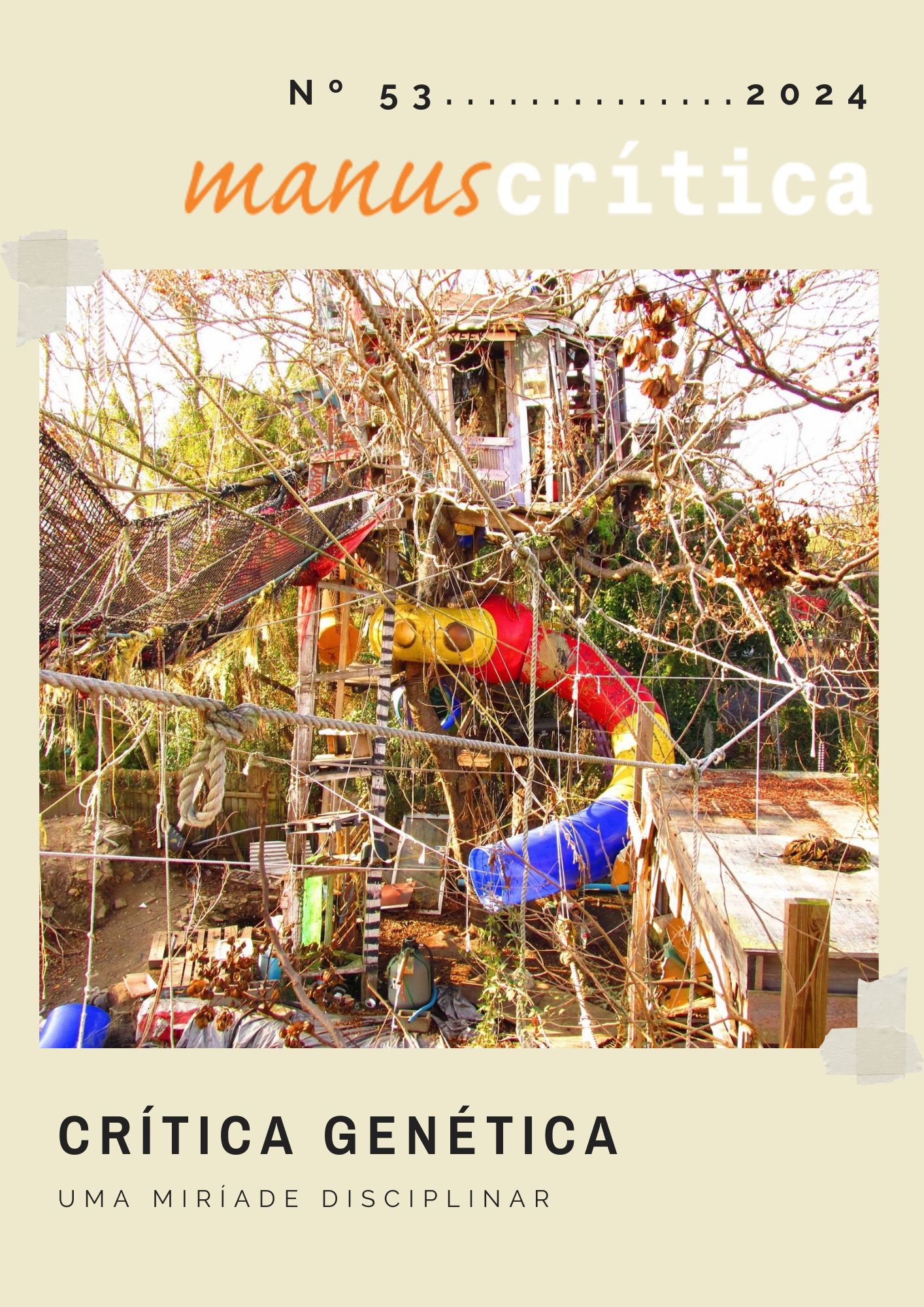From the diary to the essays of André Gide: between archive of creation and literary values
DOI:
https://doi.org/10.11606/issn.2596-2477.i53p147-161Keywords:
André Gide, Journal, Essay, Values, ProductionAbstract
The private diaries of writers have started to gain public interest because they contain the genesis of their literary works. Even though most of the time these diaries do not reveal a stage of the creative process, many function as a testimony of the work. This is the case with André Gide's diary, which brings various comments about the preparation of his literary works. Besides containing comments about his fictional works, the diary carries testimonies of the author's essayistic production, which leads us to direct our attention to the genre. Given Gide's concern with associating critical work with literary work, the very reflective nature of his essays, and the importance of writers' criticism for understanding their literary productions, we chose to work with excerpts from the diary and some essays written between 1919 and 1925, the period during which the novel The Counterfeiters was produced. From these, we will present some values present in the writer's thought—patience, work, inspiration, and impersonality—which point to a concern regarding literary production and to a modern author's affiliation with the principles of Romantic judgment.
Downloads
References
GENETTE, Gérard. Paratextos editoriais. tradução Álvaro Faleiros. Cotia,. SP: Ateliê Editorial, 2009.
GIDE, André. Journal, t. 1 (1887-1925), édition établie, présentée et annotée par Éric Marty. Paris: Gallimard, Bibliothèque de la Pléiade, 1996.
GIDE, André. Essais critiques, édition établie, présentée et annotée par Pierre Masson. Paris: Gallimard, coll. Bibliothèque de la Pléiade, 1999.
GIDE, André. Diário dos moedeiros falsos. São Paulo: Estação Liberdade, 2009.
FERNANDES, Ligia (organização e notas). Mário de Andrade escreve cartas a Alceu, Meyer e outros. Rio de Janeiro: Editora do Autor, 1968.
LEBRAVE, Jean-Louis. “La critique génétique : une discipline nouvelle ou un avatar moderne de la philologie ?”. In: Genesis (Manuscrits-Recherche-Invention), numéro 1, 1992. pp. 33-72.
LEJEUNE, Philippe. O pacto autobiográfico: de Rousseau à internet. Tradução de Jovita Maria Gerheim Noronha e Maria Inês Coimbra Guedes. Belo Horizonte: Editora UFMG, 2008.
LERICHE, Françoise; Pagès, Alain. Genèse & Correspondances, textes réunis et présentés par Françoise Leriche et Alain Pagès, Paris, Éditions des archives contemporaines/ITEM, 2012.
MORAES, Marcos Antonio de (organização introdução e notas). Correspondência Mário de Andrade & Manuel Bandeira. 2.ed. São Paulo: Edusp/IEB-USP, 2001.
PERRONE-MOISES, Leyla. “Choix et valeur dans l'œuvre critique des écrivains”. In: Littérature, n°94, 1994. Réalismes. pp. 97-112.
PERRONE-MOISES, Leyla. Altas literaturas: escolha e valor na obra crítica de escritores modernos. São Paulo: Companhia das Letras, 1998.
PIGLIA, Ricardo. Os diários de Emilio Renzi: anos de formação. Tradução de Sérgio Molina. São Paulo: Todavia, 2017.
PINO, Claudia. “Crítica genética: o que interpretar?”. Revista Desenredo, 10(2), pp. 259-273, 2014.
PROUST, Marcel. Correspondance de Marcel Proust. Organização de Philip Kolb. Paris: Plon, 1982. v. IX.
PROUST, Marcel. Essais, édition dirigée par Antoine Compagnon. Paris: Gallimard, coll. Bibliothèque de la Pléiade, 2022.
TODOROV, Tzvetan. Teorias do símbolo. Trad. Maria de Sta. Cruz. Lisboa: Edições 70, 1977.
WOOLF, Virginia. The Diary of Virginia Woolf, vol III. ed. by Anne Olivier Bell and Andrew McNeillie. London: Penguin, 1982.
Downloads
Published
Issue
Section
License
Copyright (c) 2024 Ingrid de Mesquita Cordeiro

This work is licensed under a Creative Commons Attribution 4.0 International License.













